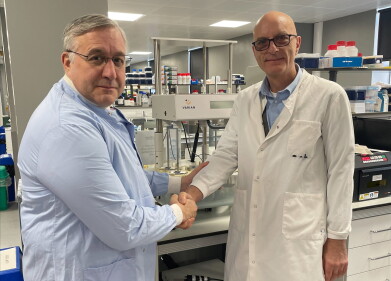News
Do Sports Drinks Actually Work?
Mar 29 2015
As time ticks down to the London Marathon on April 26th, countless runners are accelerating their training schedules in the hopes of making it to the end of mile 26. And while training that extra bit harder might help, surely there are other ways to get an extra boost. Will music help? Will better trainers help? Is it better to start slow and finish fast?
One of the main questions people frequently ask is: do sports drinks actually work? And will they help me get my feet across the line?
How do sports drinks supposedly work?
We’ve all seen the adverts banding around scientific terms to convince us that sports drinks can improve performance. Whether isotonic, hypertonic or hypotonic, the basic science behind sports drinks is that they are a quick solution to replacing water and energy spent during training. What this means in reality are high-carbohydrate drinks packed with sugar and salty electrolytes.
Is there any proof that sports drinks work?
A study led by scientists at Oxford University found that the claims made in adverts for sport products (including sports drinks, protein shakes and trainers) are consistently plagued by a “worrying” lack of proof. Evidence that does exist in favour of sports drinks points towards a much smaller benefit than average consumers are led to believe. A common theory among sports scientists is that unless training for 90 minutes or more, sports drinks are of no benefit, amounting to little more than very expensive, very sugary water.
So while sports drinks aren’t necessary for your average trip to gym, an average completion time of over four hours means they might give a much needed push to this year’s London Marathon runners. The thing to remember is that the more carbohydrates you consume, the slower the rate of absorption. This means that trying to stay hydrated by drinking a high-carb sports drink is difficult. On the other hand, water passes through the body quickly, and doesn’t provide the necessary ingredients to replenish energy stores.
The recommendation is always to try different things. Trying different combinations of drinks, with different formulations while training will allow you to work out what’s best for you. There are no magic potions to ease your journey to the finish line, and when it comes to the London Marathon, nothing beats training and a sensible pace.
Faster, Further, Higher?
If you’re still searching for an extra boost, research says that a cappuccino could help! Don’t believe us…? Beverage analysis has not only determined that coffee could extend your life expectancy, but it could also improve athletic performance!
Digital Edition
ILM 50.2 March 2025
March 2025
Chromatography Articles - Effects of small deviations in flow rate on GPC/SEC results Mass Spectrometry & Spectroscopy Articles - Waiting for the present to catch up to the future: A bette...
View all digital editions
Events
Mar 18 2025 Beijing, China
Mar 20 2025 Brussels, Belgium
Mar 20 2025 Chandigarh, India
ACS National Meeting & Expo, Spring 2025
Mar 23 2025 San Diego, CA, USA
Mar 25 2025 Paris, France




















